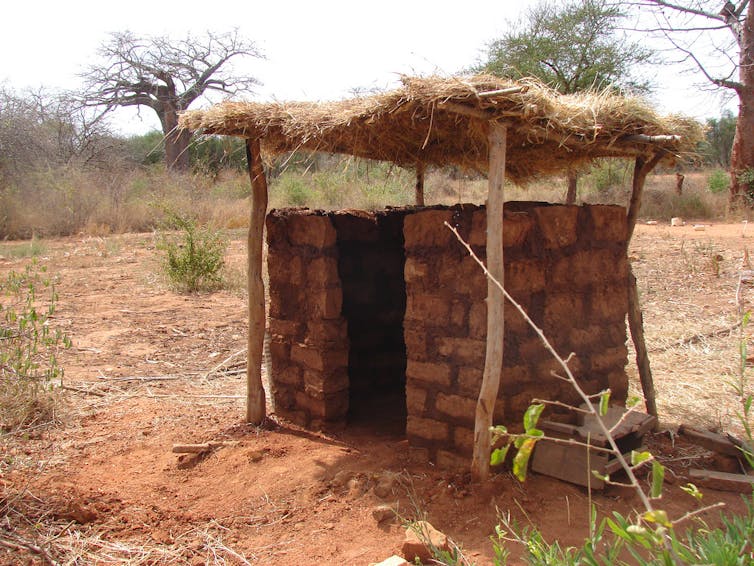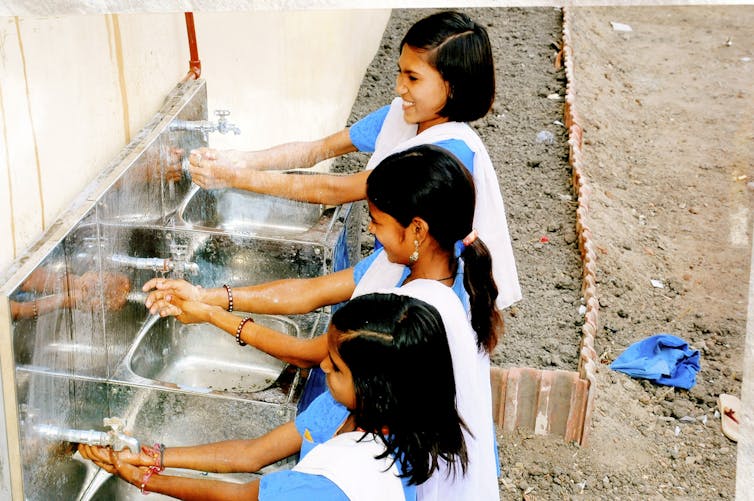Why does one third of the world’s population have inadequate sanitation?
Hopefully I can shed a bit of light on this. You see, my work is shit – literally – which is why I call myself a water, sanitation and hygiene (WASH) engineer.
When people aren’t completely scared off by my choice of discussion topics – such as faeces or the even more taboo menstrual hygiene management – they do often ask me why such a large proportion of the global population is still without adequate sanitation.
We, “the experts”, have already spent billions of dollars on this. So why haven’t we succeeded in giving more people in developing countries access to toilets?
Well, we have tried: in the 1960s and 1970s, international aid was all about providing infrastructure. Here’s a water treatment plant. Here’s a toilet. Now go for your life.
But these often failed to consider the social, cultural, environmental and economic suitability and sustainability of different WASH interventions.

If you are used to relieving yourself in nature, why would you listen to these “experts” telling you that it is “healthier” to lock yourself in a small, foul-smelling box, even if it was given to you for free?
If you are an adolescent girl who has just started menstruating, is it useful for you to have a school toilet which provides no bins or washing facilities, and has to be shared with adolescent boys? Probably not.
What’s ‘appropriate’?
This is not to say that there aren’t amazing things going on in WASH nowadays, thanks to programs led by NGOs, governments, universities, industry and, probably most importantly, communities themselves.
But it is not as simple as “giving” people a toilet, or a tap, or tampons. A lot of the people to whom I speak assume that being a WASH engineer, I (and my colleagues) must have all the answers. We do not.
In most developing communities, the most appropriate technology is often quite modest and to be honest, in many cases the local users have much better skills than engineers at transforming WASH technologies to suit their own situations. Even the best university-taught skills aren’t going to be particularly useful there.
Do I still have a job then?
Yes. WASH practitioners and researchers are now working on how they can ensure that WASH facilities, services and behaviours are sustainable and relevant in local contexts.
Giving someone access to a toilet or water source at some fixed point in time, which is how the UN currently measures the Millennium Development Goals for water and sanitation, does not imply that this will achieve “sustainable access”.
If the users do not value the benefits, they will not use the facilities. If the users do not have the capacity or the resources to maintain and repair the systems, they will fall into disuse.

The development literature is riddled with examples. And even if a community does obtain “sustainable access” to WASH facilities and services, do they really want them? Has access to these enhanced their health, self-worth, freedom and, ultimately, well-being?
Nobel Laureate Amartya Sen would certainly argue that development cannot be achieved without these. His seminal book Development as Freedom argues that without sufficient capabilities being attained and freedoms being met (including good health, stable finances, political freedom and access to opportunities) a person has not yet attained the well-being required to be considered “developed”.
Participatory research methods have highlighted that outside “experts” cannot walk into communities sprouting preconceived ideas of development: community members are the experts on their own lives.
The emphasis has shifted to building trust and rapport with these communities and giving them the support to develop workable solutions to address their immediate concerns.
This is where we can participate – by working alongside these communities and sharing our knowledge, be that in engineering, marketing, behaviour change or a myriad of other fields.
Communities bring their intimate knowledge of their own situations. It is through collaboration that we can help communities to improve their WASH facilities, services and behaviours, and develop their capacities, which, in turn, enhance their well-being.
It is no longer acceptable to simply assume that we know best – and, in my experience, the communities that I’ve worked with are not scared off when I start talking to them about toilet behaviours.
They tell me that their children are often sick with diarrhoea and they think that their WASH situation has something to do with it.
It is too important an issue to be labelled taboo.

